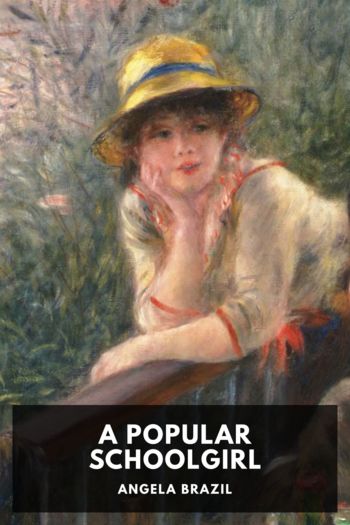Iola Leroy - Frances Ellen Watkins Harper (suggested reading txt) 📗

- Author: Frances Ellen Watkins Harper
Book online «Iola Leroy - Frances Ellen Watkins Harper (suggested reading txt) 📗». Author Frances Ellen Watkins Harper
By Frances Ellen Watkins Harper.
Table of Contents Titlepage Imprint Dedication Introduction Iola Leroy I: Mystery of Market Speech and Prayer-Meeting II: Contraband of War III: Uncle Daniel’s Story IV: Arrival of the Union Army V: The Release of Iola Leroy VI: Robert Johnson’s Promotion and Religion VII: Tom Anderson’s Death VIII: The Mystified Doctor IX: Eugene Leroy and Alfred Lorraine X: Shadows in the Home XI: The Plague and the Law XII: Schoolgirl Notions XIII: A Rejected Suitor XIV: Harry Leroy XV: Robert and His Company XVI: After the Battle XVII: Flames in the Schoolroom XVIII: Searching for Lost Ones XIX: Striking Contrasts XX: A Revelation XXI: A Home for Mother XXII: Further Lifting of the Veil XXIII: Delightful Reunions XXIV: Northern Experience XXV: An Old Friend XXVI: Open Questions XXVII: Diverging Paths XXVIII: Dr. Latrobe’s Mistake XXIX: Visitors from the South XXX: Friends in Council XXXI: Dawning Affections XXXII: Wooing and Wedding XXXIII: Conclusion Note Colophon Uncopyright ImprintThis ebook is the product of many hours of hard work by volunteers for Standard Ebooks, and builds on the hard work of other literature lovers made possible by the public domain.
This particular ebook is based on a transcription produced for Project Gutenberg and on digital scans available at the HathiTrust Digital Library.
The writing and artwork within are believed to be in the U.S. public domain, and Standard Ebooks releases this ebook edition under the terms in the CC0 1.0 Universal Public Domain Dedication. For full license information, see the Uncopyright at the end of this ebook.
Standard Ebooks is a volunteer-driven project that produces ebook editions of public domain literature using modern typography, technology, and editorial standards, and distributes them free of cost. You can download this and other ebooks carefully produced for true book lovers at standardebooks.org.
To my daughter
Mary E. Harper,
this book is lovingly dedicated.
I confess when I first learned that Mrs. Harper was about to write “a story” on some features of the Anglo-African race, growing out of what was once popularly known as the “peculiar institution,” I had my doubts about the matter. Indeed it was far from being easy for me to think that she was as fortunate as she might have been in selecting a subject which would afford her the best opportunity for bringing out a work of merit and lasting worth to the race—such a work as some of her personal friends have long desired to see from her graphic pen. However, after hearing a good portion of the manuscript read, and a general statement with regard to the object in view, I admit frankly that my partial indifference was soon swept away; at least I was willing to wait for further developments.
Being very desirous that one of the race, so long distinguished in the cause of freedom for her intellectual worth as Mrs. Harper has had the honor of being, should not at this late date in life make a blunder which might detract from her own good name, I naturally proposed to await developments before deciding too quickly in favor of giving encouragement to her contemplated effort.
However, I was perfectly aware of the fact that she had much material in her possession for a most interesting book on the subject of the condition of the colored people in the South. I know of no other woman, white or colored, anywhere, who has come so intimately in contact with the colored people in the South as Mrs. Harper. Since emancipation she has labored in every Southern State in the Union, save two, Arkansas and Texas; in the colleges, schools, churches, and the cabins not excepted, she has found a vast field and open doors to teach and speak on the themes of education, temperance, and good home building, industry, morality, and the like, and never lacked for evidences of hearty appreciation and gratitude.
Everywhere help was needed, and her heart being deeply absorbed in the cause she willingly allowed her sympathies to impel her to perform most heroic services.
With her it was no uncommon occurrence, in visiting cities or towns, to speak at two, three, and four meetings a day; sometimes to promiscuous audiences composed of everybody who would care to come.
But the kind of meetings she took greatest interest in were meetings called exclusively for women. In this attitude she could pour out her sympathies to them as she could not do before a mixed audience; and indeed she felt their needs were far more pressing than any other class.
And now I am prepared to most fully endorse her story. I doubt whether she could, if she had tried ever so much, have hit upon a subject so well adapted to reach a large number of her friends and the public with both entertaining and instructive matter as successfully as she has done in this volume.
The grand and ennobling sentiments which have characterized all her utterances in laboring for the elevation of the oppressed will not be found missing in this book.
The previous books from her pen, which have been so very widely circulated and admired, North and South—Forest Leaves, Miscellaneous Poems, Moses, a Story of the Nile, Poems, and Sketches of Southern Life (five in number)—these, I predict, will be by far eclipsed by this last effort, which will, in all probability, be the crowning effort of her long and valuable services in the cause of humanity.
While, as indicated, Mrs. Harper has done a large amount of work in the South, she has at the same time done much active service in the temperance cause in the North, as thousands of this





Comments (0)